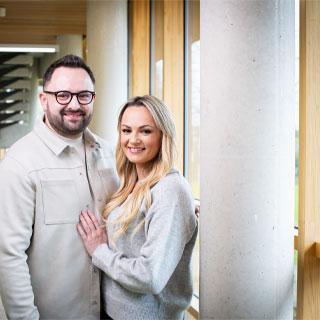
Ness and Marek
BSc (Hons) Paramedic Science
Ness and Marek met three years ago when they were both volunteering as Community First Responders.
Marek had come to the UK from Poland where he had worked for the ambulance service.
Ness had finally decided to begin focusing on herself and her career after spending a large part of her life caring for her two children who both have additional needs. Her eldest daughter has autism and ADHD, while her youngest daughter has severe, complex medical needs, including using a wheelchair and being fed with a feeding tube.
Ness and Marek became good friends when they met. After the pandemic, during which Marek was seriously ill with Covid, they became a couple and began their journey to become qualified paramedics together.
This is their story.
As mature students with children who have additional and complex needs, the University of Bradford seemed like the perfect choice for us.
A tough road
“Our journey to get here wasn’t smooth.”
“We both did the HE Access to Health Science course at Leeds City College so that we could go on to study at degree level, but it wasn’t easy.
"I had to look after my two daughters and Marek’s mum broke her back. This meant he had to spend a lot of time travelling to and from Scotland where she lived so he could care for her.
“We had to fund everything too, so we both worked for the private sector ambulance service, working with medical event companies, alongside doing the course.
"It was a real struggle to fit everything in."
Gathering qualifications
"At the same time we were doing the Access to Health Science course, Marek also needed to take his Maths GCSE in order to get into university."
"We both passed the Access to Health Science course with Distinctions, but Marek was still struggling to pass his Maths GCSE. He eventually went on to do a Functional Skills course instead of the GCSE, but he had to do it four times before he passed and was worried he'd lose out on his university place.
"Luckily he passed his Maths in time to start his course with the rest of his cohort."
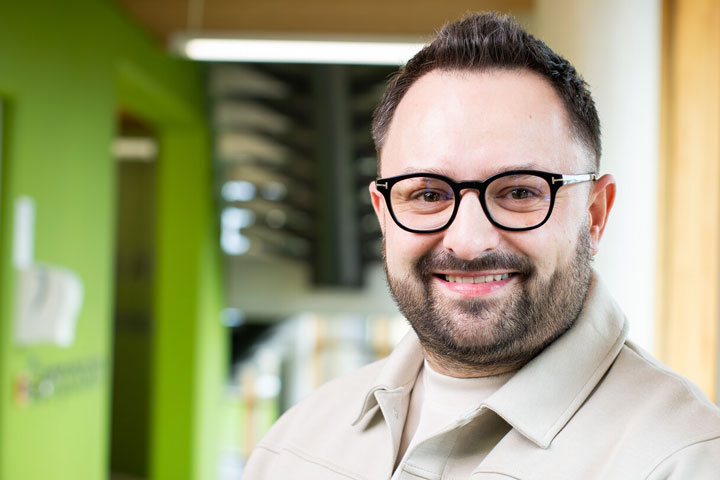
There were times when we felt like we’d never get here!
A helping hand
“We met an outreach and recruitment officer from the University of Bradford at college and she became our cheerleader.”
“While we were at college, we met Caroline, an outreach and recruitment officer from the University of Bradford. We hit it off straight away.
"She was there for us throughout all our struggles and became a real cheerleader for us.
“Caroline was instrumental in getting us onto this course and is a shining example of all the brilliant staff at the University of Bradford. They always go above and beyond to help you achieve great things and be the best you can be.”
Choosing Bradford
“We chose the University of Bradford as it’s welcoming and inclusive and the tutors really know their stuff.”
"The tutors here are all down to earth and knowledgeable, which we really liked. Most of them previously worked as paramedics for a long time. They talk and act like paramedics and know everything there is to know about real life on the road.
"They also come from a variety of different professional backgrounds. Some have worked as solo paramedics, and some have worked as HEMS (Helicopter Emergency Medical Service) paramedics. They can offer insight into different specialisms and help provide a well-rounded education."
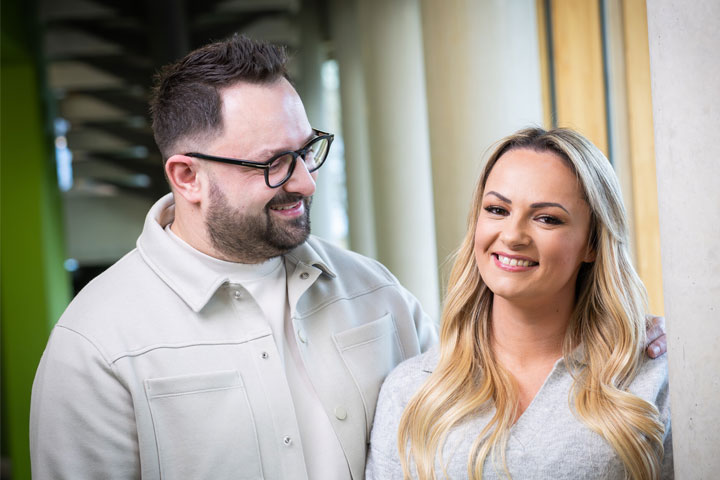
We’ve both loved every second of the course so far and we’re both trying to get as much out of the experience as possible.
Practical work experience
“The course is practical and work experience-led.”
"The course is four years long and includes a sandwich year where you work in a paid position as a Technician for the Yorkshire Ambulance Service.
“You do the sandwich year in addition to regular, shorter placements every year, so it’s a very practical and work experience-led course.
"Doing a placement year makes so much sense to us both, as it will give us the opportunity to get a lot of experience without having to hold all the responsibility."
The first year
“The first year has been fantastic so far.”
“All the tutors have masses of relevant experience and are really open and honest about what life as a paramedic is like.
"They teach us best practice, but also follow up with examples of how things might happen on the road, so you get really rounded insights into how to best handle different situations.
"We’re both already on placement too, which is quite early, but the University of Bradford believes that students should be put into the environment they’ll be working in straight away so they can begin gaining valuable experience."
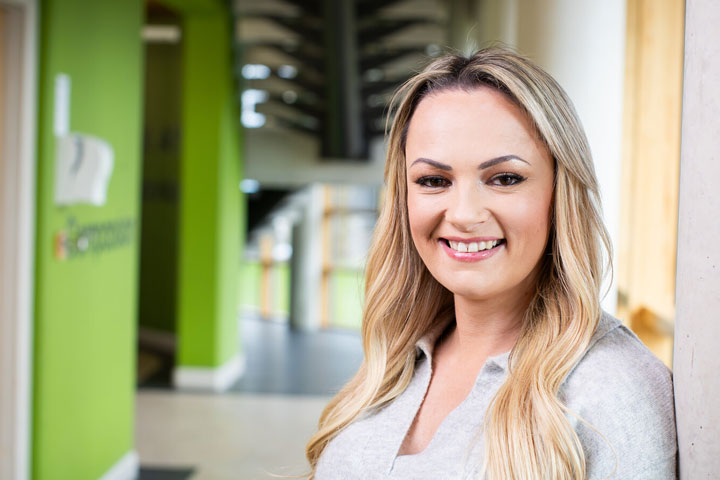
Future plans
“We both want to move into critical care eventually.”
"This way we will be able to respond to seriously ill patients and offer a higher, advanced level of care. This course will allow us to go on to study at an even higher level afterwards so that we can achieve this goal.
It will play a vital part in fulfilling our career ambitions and will help us become the best practitioners we can be."
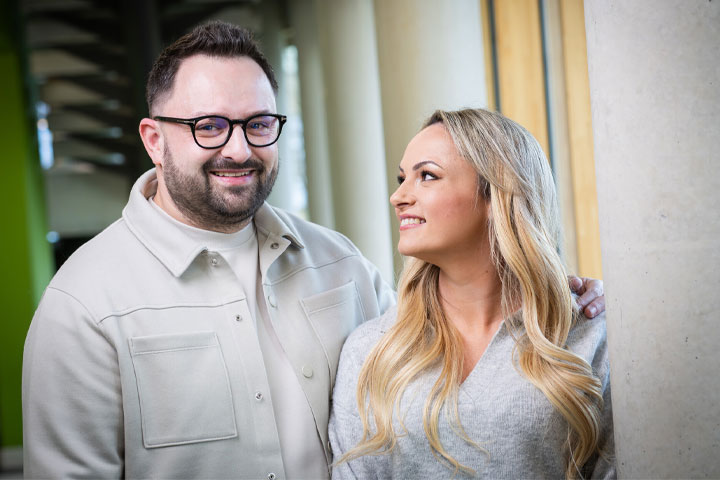
Advice to students hoping to become paramedics
“Before applying to be a paramedic, get some experience. It can be a daunting career, so it’s crucial to try it out to see if it’s for you before you commit to studying it."
“The best way to get experience is by becoming a Community First Responder. This role involves treating patients with life-threatening illnesses before an ambulance can get to them.
“It’s a frontline role, so you’ll get some amazing experience and a real insight into whether being a paramedic is the right career choice for you. You’ll also get to work alongside experienced paramedics once they arrive on scene, so you can watch them in action and learn from what you see.”
